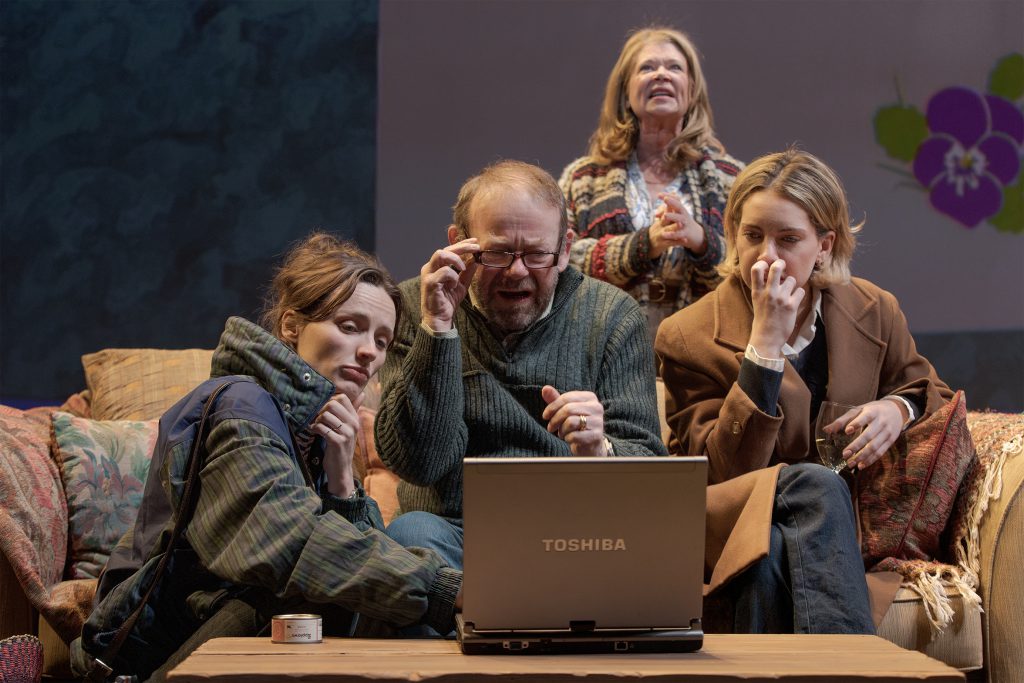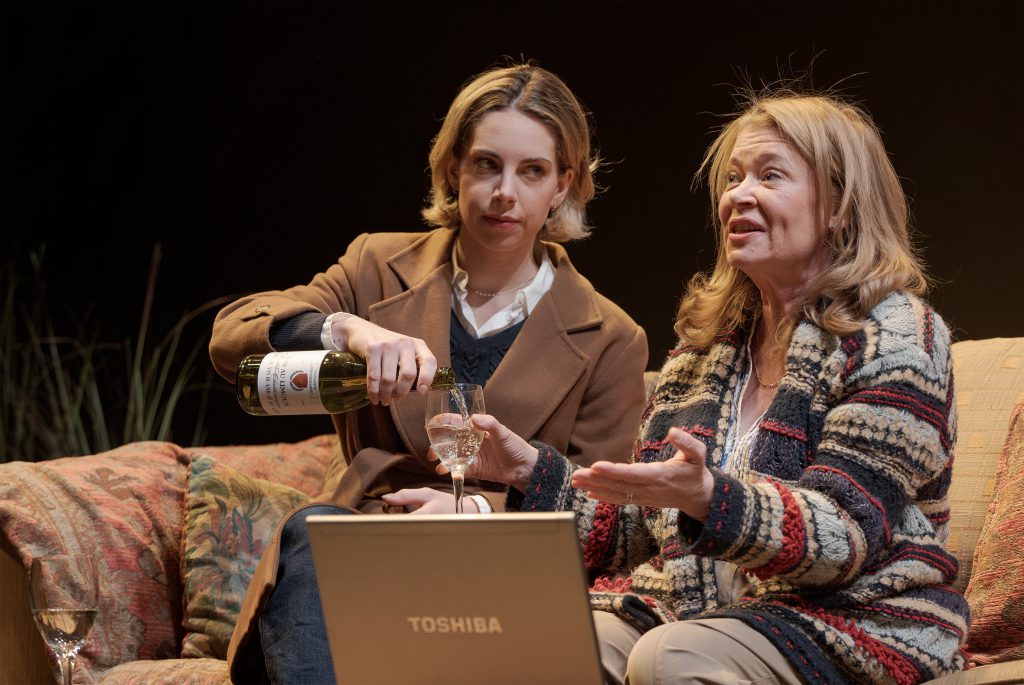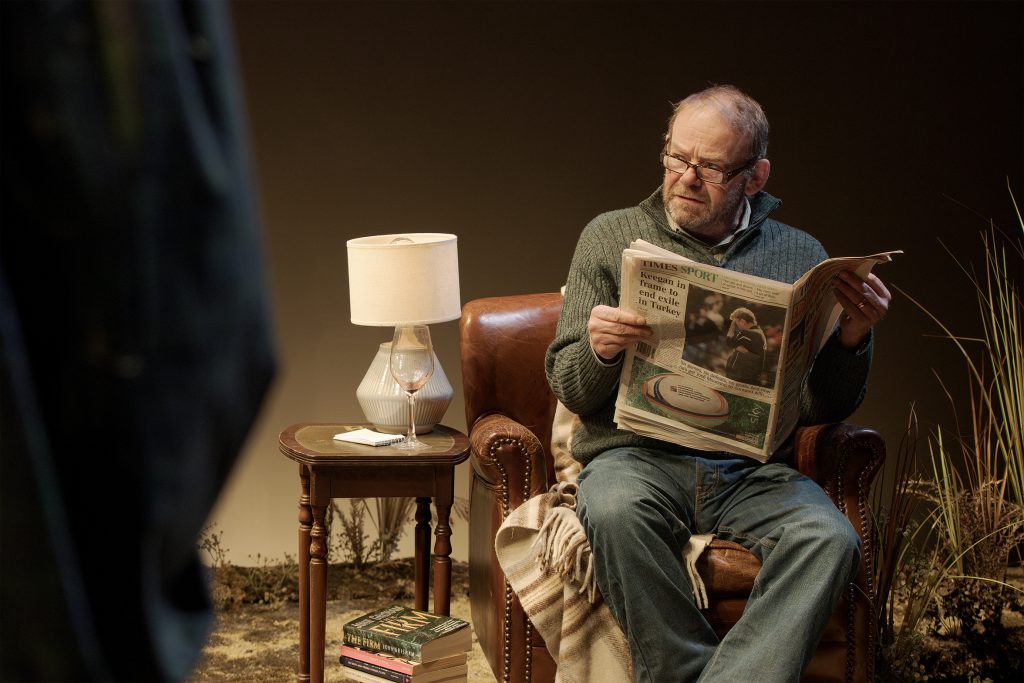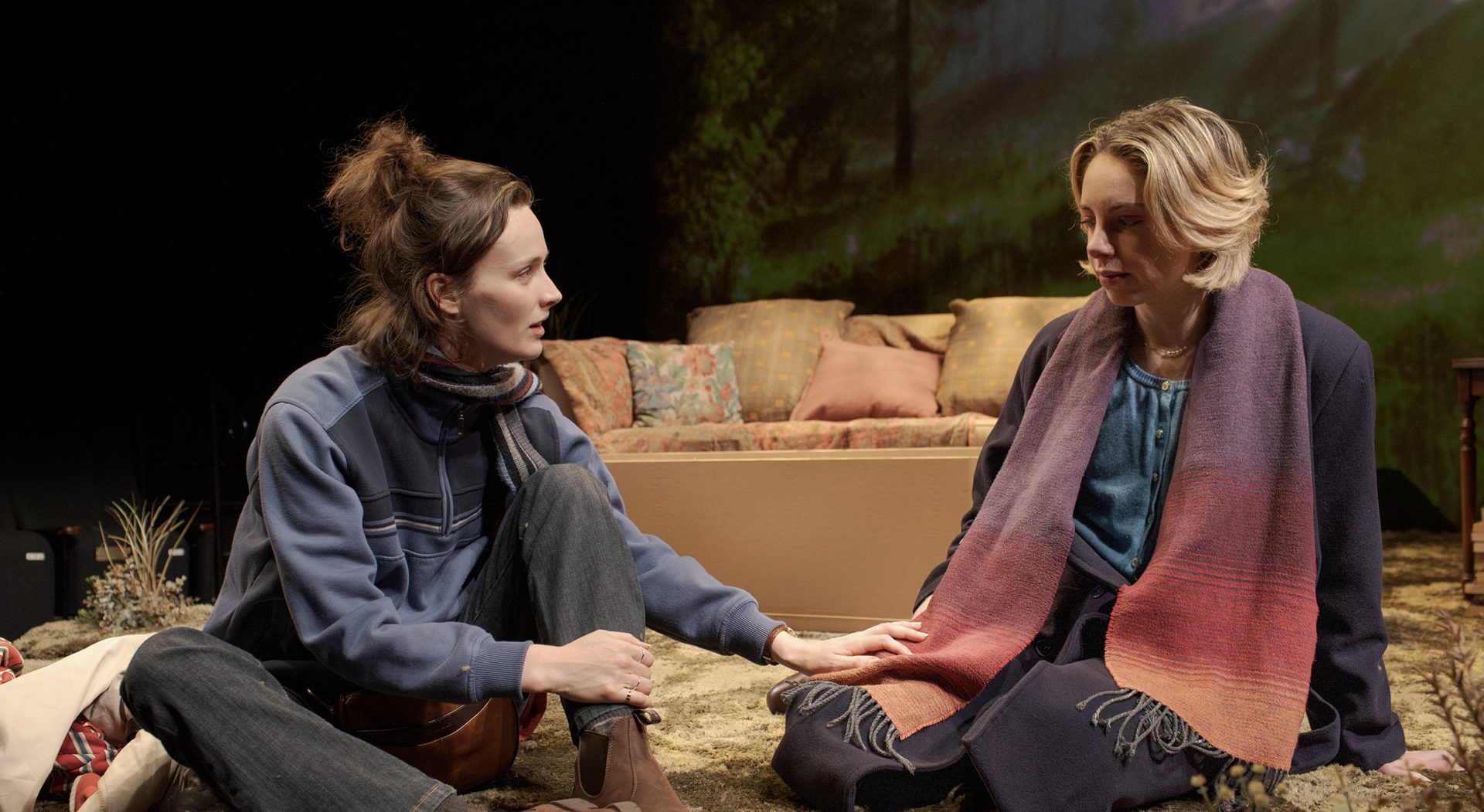Colder Than Here is a thoroughly entertaining reminder that even in the bleakest of circumstances, there is light, and sometimes even, laughter, to be found.
Ensemble’s Colder Than Here, directed by Janine Watson, emerges as a remarkable specimen: both tender and ticklish. It’s an offbeat, somewhat dark, comedy that explores the fragile interplay of love, loss, and how we face mortality. Written by Laura Wade, earning her a Critics’ Circle Theatre Award and an Olivier nomination, expectations are undoubtedly high. While the play does tug at the heartstrings, it also leaves room for improvement, balancing its poignant moments with an experience that is, on the whole, quite enjoyable.

Colder Than Here’s protagonist, Myra, is portrayed with nuance and authenticity by lead Hanna Waterman. Myra must not only confront her own mortality but takes on the role of salvaging the mountain of personal dramas being endured by her family. Her efforts are both endearing and cringe-worthy as she obsessively researches flatpack, cardboard, coffins while her family descends into chaos. The absurdity of her quest, to arrange the perfect, albeit highly unconventional, funeral, brings the audience to the intersection of humour and tragedy. It’s in these moments that Wade’s writing truly shines, allowing the audience to laugh in the face of death, a feat that is both disarming and refreshing.
The strength of the production lies heavily in its performances. The supporting cast, Myra’s husband, Alec (Huw Higginson), and their daughters, Harriet (Charlotte Friels) and Jenna (Airlie Dodds) – deliver solid portrayals that complement Myra’s character beautifully. Alec, with his newspaper as a shield against the looming incompetence of boilermakers, embodies the everyman as he desperately clings to the mundanity of life despite Myra’s illness. The daughters, navigating their own personal crises, provide layers of depth that resonate with anyone. While these subplots occasionally feel underdeveloped and detached from the main narrative, they enrich the sense of dysfunction that Wade portrays so humorously and makes the show much more relatable.

Visually, Ensemble’s production is well-done. The set design (credit to Michael Hankin), enhanced by artistic projections and lighting (credits to Mark Bolotin and Morgan Moroney respectively), creates environments that can feel both familiar and the surreal. These projections serve to reinforce the emotional impact of the show, particularly as they connect so strongly with the underlying script.
One of the only drawbacks of Colder Than Here is its somewhat predictable narrative arc. The familiar tropes of familial tension, while humorous, lack freshness, and the inevitable conclusion feels slightly underwhelming. These predictable moments diminish the overall impact of the production, making it less memorable than it could have been had the characters or plot been more distinct.

Colder Than Here is a commendable, and very heartwarming, exploration of mortality that is presented with humour. Myra’s journey is a testament to the human spirit’s will to find joy amid sorrow. With its engaging performances, striking visuals, and moments of genuine laughter, it is a production that certainly deserves to be seen. Just be prepared to feel the occasionally underwhelming feeling of its narrative turns. Ultimately, Colder Than Here is a thoroughly entertaining reminder that even in the bleakest of circumstances, there is light, and sometimes even, laughter, to be found.
